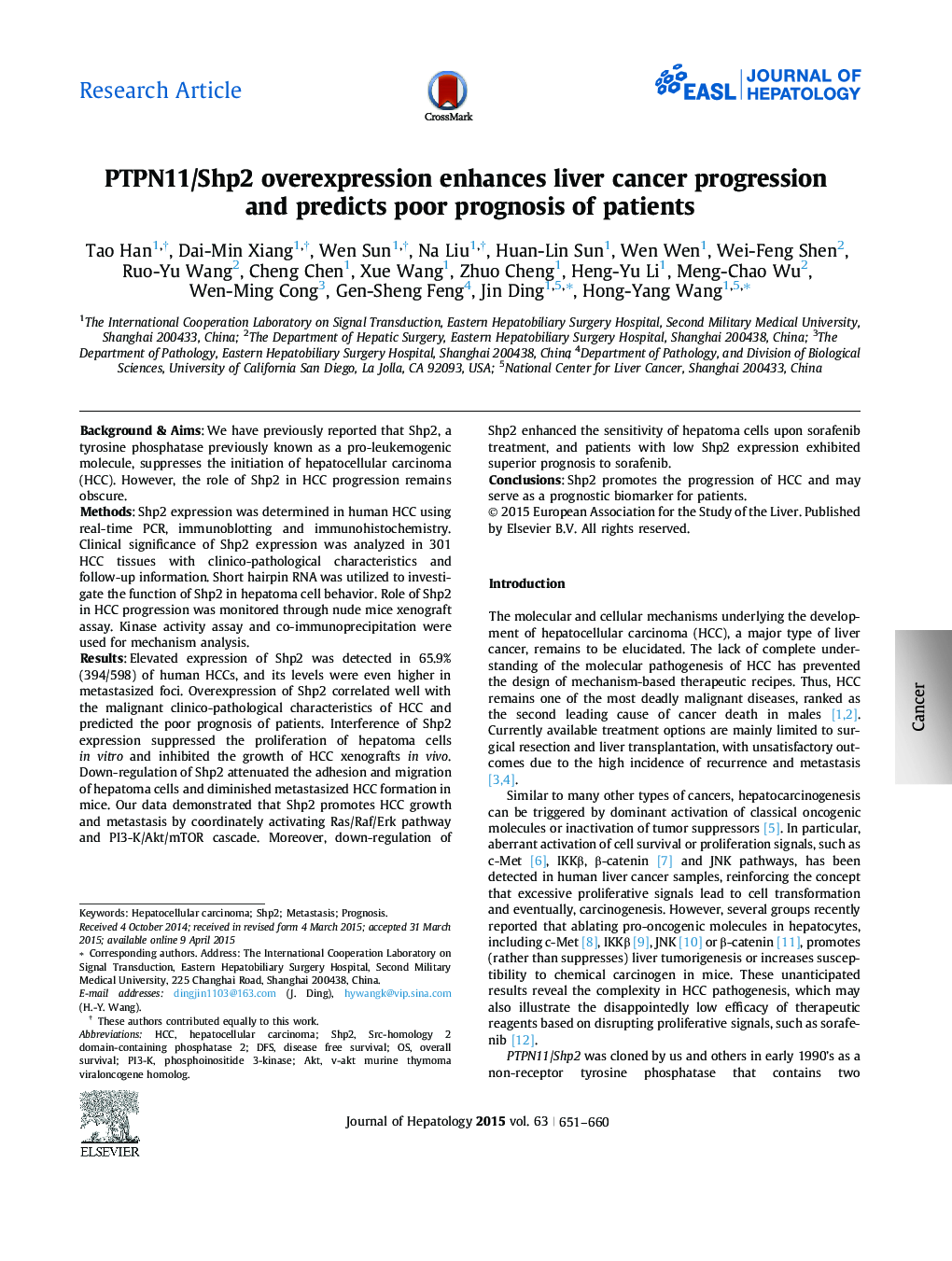| Article ID | Journal | Published Year | Pages | File Type |
|---|---|---|---|---|
| 6101735 | Journal of Hepatology | 2015 | 10 Pages |
Background & AimsWe have previously reported that Shp2, a tyrosine phosphatase previously known as a pro-leukemogenic molecule, suppresses the initiation of hepatocellular carcinoma (HCC). However, the role of Shp2 in HCC progression remains obscure.MethodsShp2 expression was determined in human HCC using real-time PCR, immunoblotting and immunohistochemistry. Clinical significance of Shp2 expression was analyzed in 301 HCC tissues with clinico-pathological characteristics and follow-up information. Short hairpin RNA was utilized to investigate the function of Shp2 in hepatoma cell behavior. Role of Shp2 in HCC progression was monitored through nude mice xenograft assay. Kinase activity assay and co-immunoprecipitation were used for mechanism analysis.ResultsElevated expression of Shp2 was detected in 65.9% (394/598) of human HCCs, and its levels were even higher in metastasized foci. Overexpression of Shp2 correlated well with the malignant clinico-pathological characteristics of HCC and predicted the poor prognosis of patients. Interference of Shp2 expression suppressed the proliferation of hepatoma cells in vitro and inhibited the growth of HCC xenografts in vivo. Down-regulation of Shp2 attenuated the adhesion and migration of hepatoma cells and diminished metastasized HCC formation in mice. Our data demonstrated that Shp2 promotes HCC growth and metastasis by coordinately activating Ras/Raf/Erk pathway and PI3-K/Akt/mTOR cascade. Moreover, down-regulation of Shp2 enhanced the sensitivity of hepatoma cells upon sorafenib treatment, and patients with low Shp2 expression exhibited superior prognosis to sorafenib.ConclusionsShp2 promotes the progression of HCC and may serve as a prognostic biomarker for patients.
Graphical abstractDownload high-res image (63KB)Download full-size image
